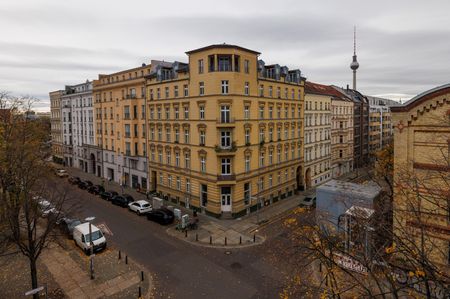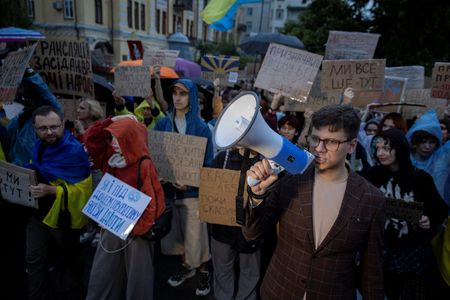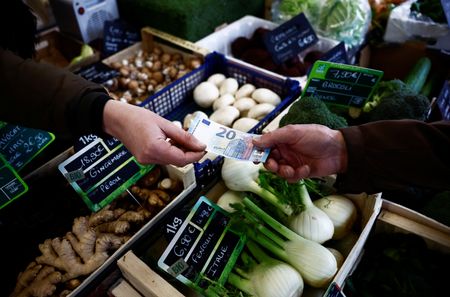By Tom Sims
FRANKFURT (Reuters) – Germany is loosening a regulatory measure designed to soften the blow of a property crisis, a sign that officials are somewhat less worried about fallout from the nation’s troubled real-estate industry.
BaFin, the German financial regulator, said on Wednesday that it would trim to 1% from 2% the amount it requires banks to hold as capital for residential mortgage loans.
“The vulnerabilities on the German real estate market have declined significantly, but have not yet been fully eliminated,” BaFin said.
Property industry leaders and bankers said Bafin’s move was long overdue and also fell short.
Germany’s property sector, which began to shrink in 2022, is undergoing its most severe slump in decades. The turmoil has resulted in sharp drops in prices, stagnating sales and developers going into insolvency.
Commercial buildings, like offices and retail space, remain under stress, but the market for homes has stabilized, with prices once again rising and new lending increasing.
The property industry association ZIA and the VDP banking association both said the charge should have been completely abolished.
“Even a buffer of 1% represents a burden for lenders that is not objectively justified,” said VDP CEO Jens Tolckmitt.
BaFin’s move frees up capital that banks can deploy for other purposes by an estimated 2 billion to 2.5 billion euros ($2.3 billion-$2.8 billion), BaFin said.
The watchdog said it would at the same time keep in place a second charge of 0.75% – the so-called countercyclical capital buffer – that it had imposed in early 2022.
“The general risk situation continues to pose challenges, however, and the outlook is marked by high uncertainty,” BaFin said in justifying the maintenance of the buffer.
ZIA said the retention of the 0.75% buffer was “incomprehensible” given the weak economy and sluggish lending.
“This is making it much more difficult to finance the entire economy,” said ZIA CEO Aygul Ozkan.
($1 = 0.8794 euros)
(Reporting by Tom Sims, editing by Thomas Seythal and Madeline Chambers)










